Before “quiet quitting,” there was “gather an army and overthrow the dynasty.”
1️⃣ Let’s Do This Quick & Dirty
TL;DR:
The title of Zhou Dynasty founder is a bit of a team effort. King Wen planned the rebellion, his son King Wu actually led the charge and won the throne, and Wu’s brother, the Duke of Zhou, did the boring-but-essential paperwork to make it stick. They overthrew the Shang Dynasty because its final king was a monster who made for a great villain origin story.
What Actually Happened:
- The Bad Guy: The last Shang emperor, King Di Xin, was allegedly a real piece of work. Historians accuse him of building a lake of wine and hosting naked forest parties. (Yes, really.)
- The Good Guy (Planner): King Wen of Zhou was a vassal lord known for being wise and virtuous. The Shang king got jealous of his popularity, threw him in jail, but eventually let him go—big mistake. Wen spent the rest of his life plotting a rebellion.
- The Hero (The Official Founder): After Wen died, his son, King Wu, took over. He became the official Zhou Dynasty founder around 1046 BCE by leading a coalition army, crushing the Shang forces at the legendary Battle of Muye, and establishing a new dynasty.
- The Stabilizer: King Wu died just a couple of years later, leaving a child heir. His super-capable brother, the Duke of Zhou, stepped in as regent, squashed rebellions, and set up the government, ensuring the new dynasty didn’t immediately implode.
Why It Mattered:
This team introduced the “Mandate of Heaven”—the revolutionary idea that Heaven grants the right to rule, but can also take it away if a ruler is wicked. This concept justified rebellions and shaped Chinese political philosophy for the next 3,000 years.
Bonus Fun Fact:
During the decisive Battle of Muye, many of the Shang Dynasty’s own soldiers were so fed up with their terrible king that they either switched sides or just didn’t fight, turning their spears upside down as a sign of surrender.
Oversimplified Rating: 👑👑👑👑👑 Regime Change Realness Level
2️⃣ Okay, You Want the Full Drama? Pull Up a Seat.
What Led to It? The Last Shang King Was Basically a Supervillain
To understand why a new dynasty was needed, you have to meet the last boss of the Shang Dynasty: King Di Xin. If the historical accounts (written by his enemies, mind you) are even 10% true, this guy was less of a king and more of a rockstar on a world-ending bender.
Ancient chroniclers, especially the famous historian Sima Qian, paint a lurid picture. They claim Di Xin built a massive pool filled with wine, had a “forest” of meat skewers hanging from trees, and forced guests to chase each other naked through the gardens for his amusement. He was also said to be incredibly cruel, inventing a method of execution called “the burning pillar,” where victims were forced to hug a superheated bronze cylinder.
Whether he was truly this cartoonishly evil or just a victim of a very effective smear campaign, one thing was clear: his rule was marked by corruption, military overreach, and a detachment from the needs of his people. He provided the perfect justification for a change in management.
Who Was Involved? The Founding Fathers of Zhou
Unlike many dynasties that have one clear-cut founder, the Zhou’s origin story is a family affair. Three men are essential to the plot:
- King Wen, The Planner: The original mastermind was Ji Chang, posthumously known as King Wen. He was the ruler of the Zhou state, a vassal territory on the western frontier of the Shang kingdom. Wen was everything King Di Xin was not: cultured, just, and respected. He attracted scholars and capable officials, causing his power and influence to grow. Di Xin, noticing Wen’s rising popularity, had him imprisoned. After his release, Wen knew a confrontation was inevitable and began laying the groundwork for rebellion, but he died before he could see it through.
- King Wu, The Finisher: The man who gets the official title of Zhou Dynasty founder is Wen’s son, Ji Fa, known as King Wu. He inherited his father’s mission, his army, and his alliances. Wu was a brilliant military leader who saw the opportunity his father had created. In 1046 BCE, declaring that Heaven had abandoned the wicked Shang, he led an army of 50,000 troops across the Yellow River to confront Di Xin’s massive force. His victory at the Battle of Muye was swift, decisive, and legendary. He marched into the Shang capital, declared a new dynasty, and became its first king.
- The Duke of Zhou, The Architect: King Wu’s reign was tragically short; he died just two years after founding the dynasty. His son and heir, King Cheng, was just a child. This was a perilous moment—a new dynasty could easily collapse. Stepping into the void was King Wu’s brother, the Duke of Zhou. As regent, he was the glue that held everything together. He put down rebellions from disgruntled Shang loyalists and even his own jealous brothers. More importantly, he established the political and social structures of the Zhou. He is credited with formalizing the Mandate of Heaven, creating the “well-field” system of land distribution, and championing rites and music as tools of good governance. Many historians argue that without the Duke of Zhou, the work of the Zhou Dynasty founder, King Wu, would have crumbled.
Debunking a Common Myth: Was the “Mandate of Heaven” Just a Good Excuse?
Yes and no. The Mandate of Heaven was the core doctrine introduced by the Zhou to legitimize their rule. It stated that the ruler was the “Son of Heaven,” chosen for his virtue. If a ruler (and his dynasty) became corrupt and tyrannical, Heaven would show its displeasure through natural disasters like floods and earthquakes. This was a sign that the ruler had lost the Mandate, and it gave the people—or more practically, a rival leader—the right to rebel.
Was it a brilliant piece of political propaganda to justify what was, essentially, a hostile takeover? Absolutely. It was a genius PR move that painted the Zhou Dynasty founder not as a usurper, but as an instrument of divine will.
However, it was also a profound philosophical development. It introduced a moral dimension to governance and held rulers accountable for their actions. For the first time, there was a stated cosmic reason why a king should rule justly. This concept was so powerful that it became the foundation of political legitimacy for every dynasty that followed, all the way until the 20th century.
🔍 Mini FAQ: All Your Zhou Questions Answered
Q: Who was the official founder of the Zhou Dynasty?
A: King Wu of Zhou is considered the official Zhou Dynasty founder. He led the military campaign that defeated the Shang Dynasty and established the new regime around 1046 BCE.
Q: How did the Zhou Dynasty begin?
A: It began after King Wu, building on the plans of his father King Wen, successfully overthrew the corrupt last king of the Shang Dynasty at the Battle of Muye.
Q: What is the Mandate of Heaven?
A: The Mandate of Heaven is the philosophical idea that a ruler’s right to rule is granted by a divine power (Heaven) based on their virtue and moral conduct, and that this right can be lost if they become tyrannical.
Q: Who was the first king of the Zhou Dynasty?
A: King Wu was the first king, or emperor, of the Zhou Dynasty.
Q: Why did the Shang Dynasty fall?
A: The Shang Dynasty fell due to the corruption and cruelty of its last ruler, King Di Xin, combined with the rise of the powerful and virtuous Zhou clan under King Wen and King Wu.
Q: Who was the Duke of Zhou and why was he important?
A: The Duke of Zhou was King Wu’s brother. He became the regent for his young nephew and was crucial in consolidating the new dynasty, putting down rebellions, and establishing its key political and cultural systems.
Q: What was the Battle of Muye?
A: It was the decisive battle where King Wu’s smaller Zhou army defeated the much larger army of the Shang Dynasty, leading directly to the establishment of the Zhou Dynasty.
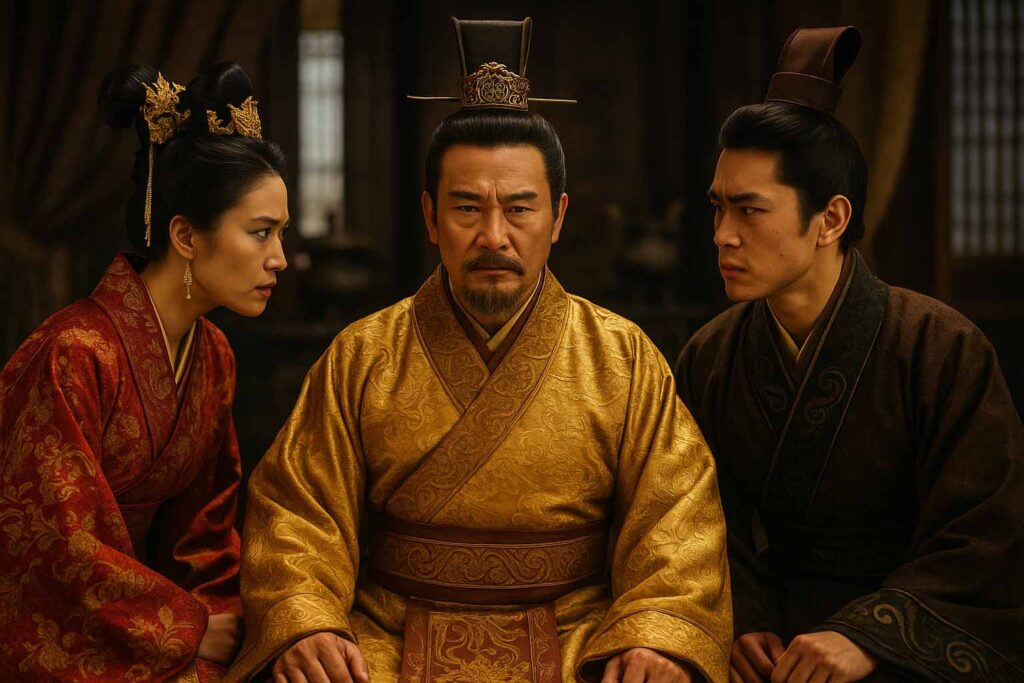
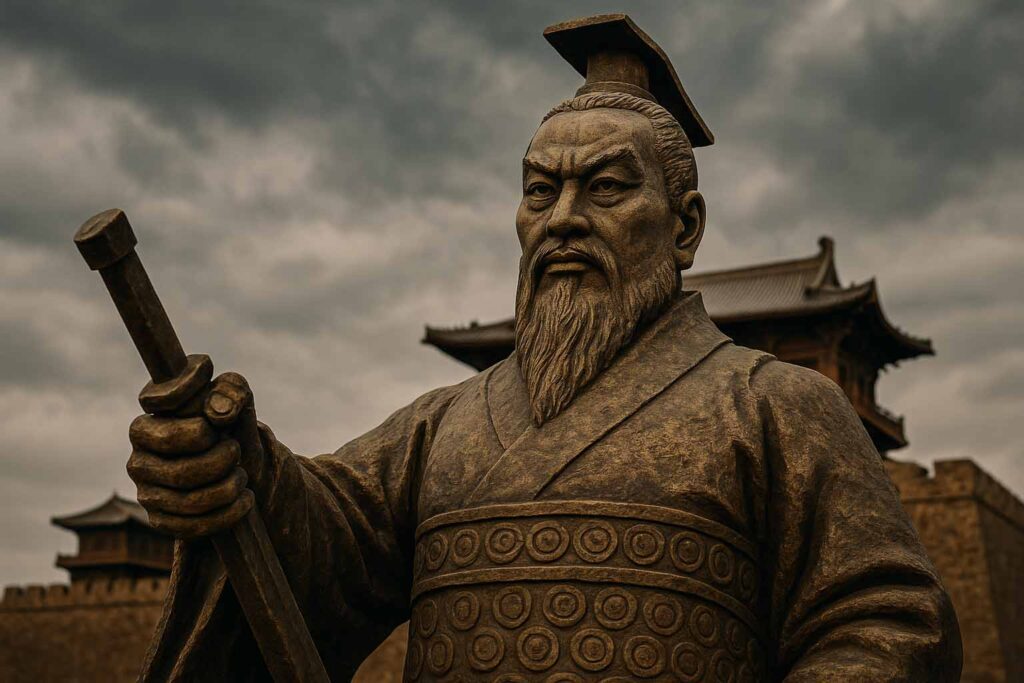
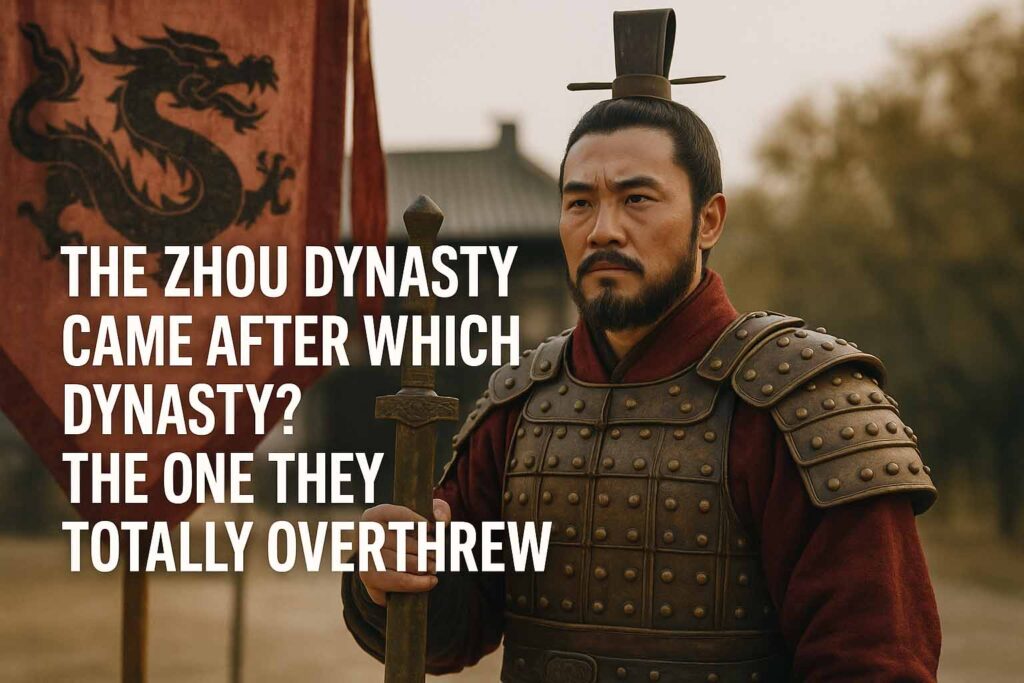
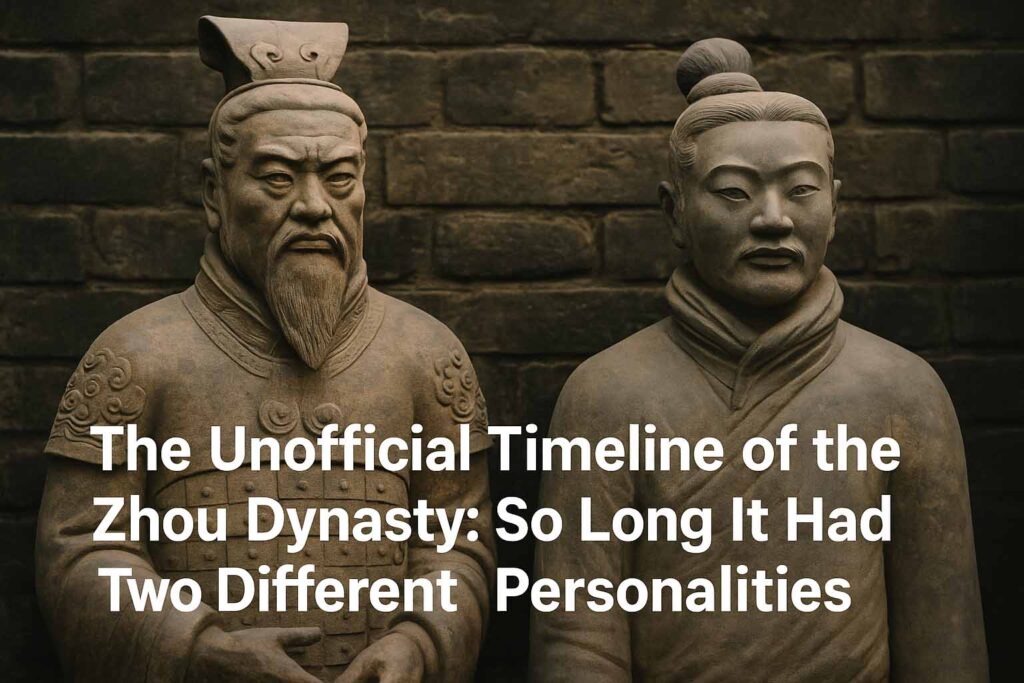
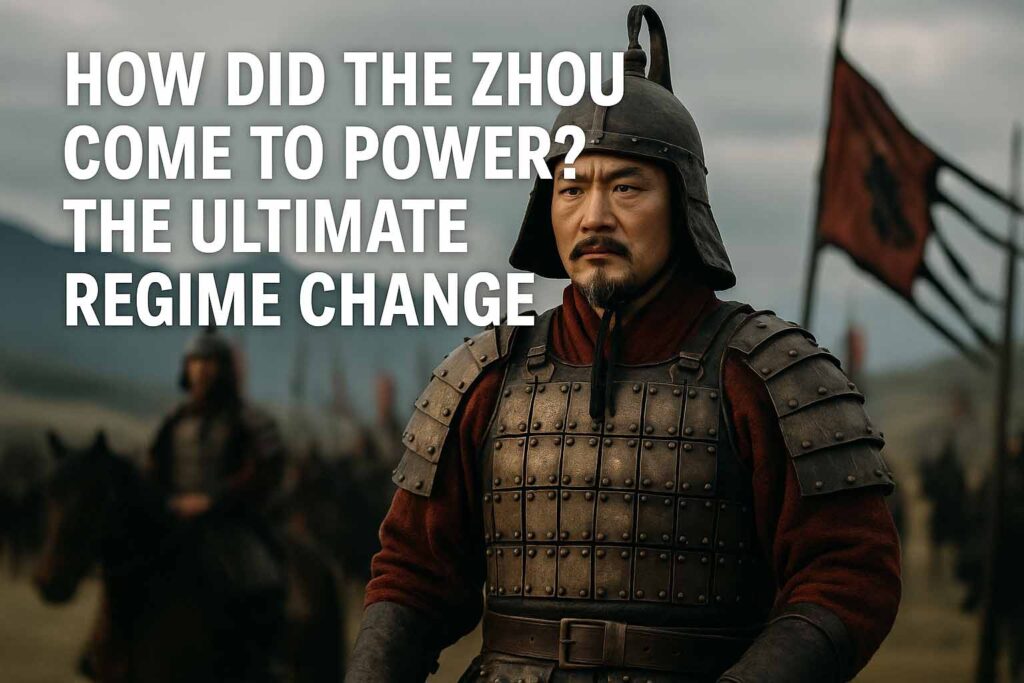
No comment yet, add your voice below!